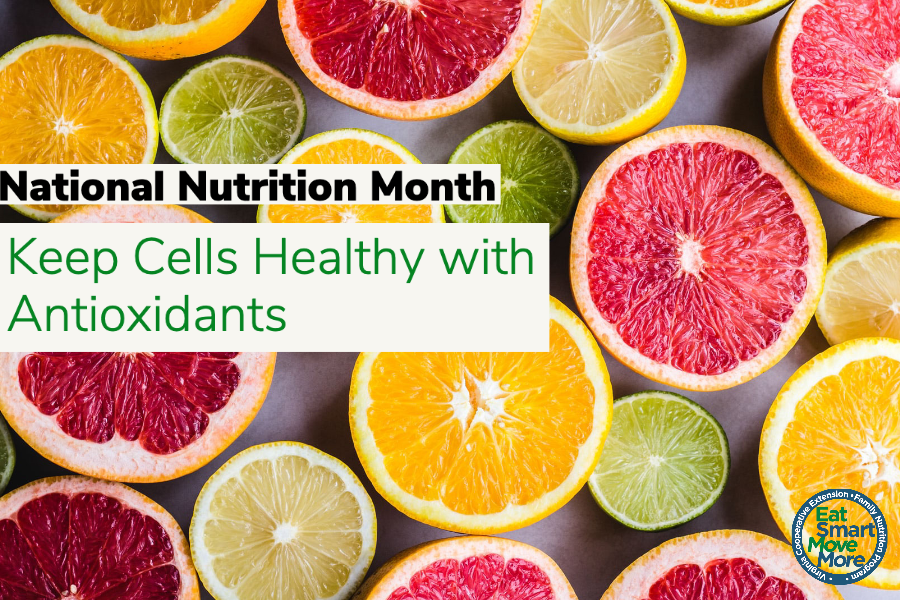The immune system is constantly working to destroy threats inside the body. The ones you’re probably most aware of are bacteria and viruses. However, your body is also fighting off free radicals. Free radicals get inside healthy cells and weaken them, which makes your body more susceptible to illness and chronic diseases like cancer. The body produces them when exercising or breaking down food. They’re also produced by outside factors such as sunlight, pollutants, exposure to chemicals, smoking, or x-rays.
Unlike viruses or bacteria, you can’t necessarily take medication to help your body cope with free radicals. Instead, your body relies on nutrients called antioxidants. Antioxidants are nutrients that strengthen and protect your cells from being attacked by free radicals, or at least slow down the weakening of cells.
The daily nutritional value of antioxidants depends on your age. You can get more antioxidants into a balanced diet through eating more fresh fruits and vegetables, or by taking an antioxidant supplement. There are several natural nutrients that contain antioxidants.
Vitamin C
There’s plenty of chemistry involved in Vitamin C’s role as an antioxidant, but what you need to know is that it helps neutralize certain free radicals in your body. It is important for your immune system because it boosts production of antibodies, or the part of your immune system that fights off infections. Vitamin C is a water-soluble vitamin, which means that your body uses 100% of the daily value of this nutrient, then gets rid of the rest. Foods that contain high levels of Vitamin C such as citrus fruits, blueberries, red bell peppers, mango, papaya, and strawberries.
Vitamin A
This vitamin is an extremely effective antioxidant as it helps regulate the immune system by keeping the skin and several tissues in the body healthy. Most Americans don’t get enough vitamin A in their diet. This nutrient is a fat soluble vitamin, which means any extra amount you get in a day will be stored in your body. It’s very difficult to get too much vitamin A, but getting too much is harmful. Stick to getting this nutrient through bright red, orange natural sources such as pumpkin, sweet potato, carrots, and squash. You can also find it in some dark, leafy vegetables like broccoli and Brussels sprouts.
Vitamin E
Vitamin E neutralizes free radicals and gives your immune system a boost. It also helps keep your blood vessels open and works to prevent blood clots. You’ll find this nutrient in nuts: peanuts, almonds, sunflower seeds, and hazelnuts. The fat in vegetable oil is also a source of vitamin E, but be sure to use it in moderation.
Some foods also have these nutrients added to them, so check the Nutrition Facts label to be sure. Supplements are a good way to ensure you’re getting the nutrients you need, but getting too much can be harmful to your body. Always consult with your healthcare provider, especially if you have an existing medical condition, to see if you need a nutritional supplement of any kind. This is especially important for those in need of urgent care Bayside, Queens. Although antioxidants can’t outright prevent disease, they’re still vitally important in keeping your cells healthy.

